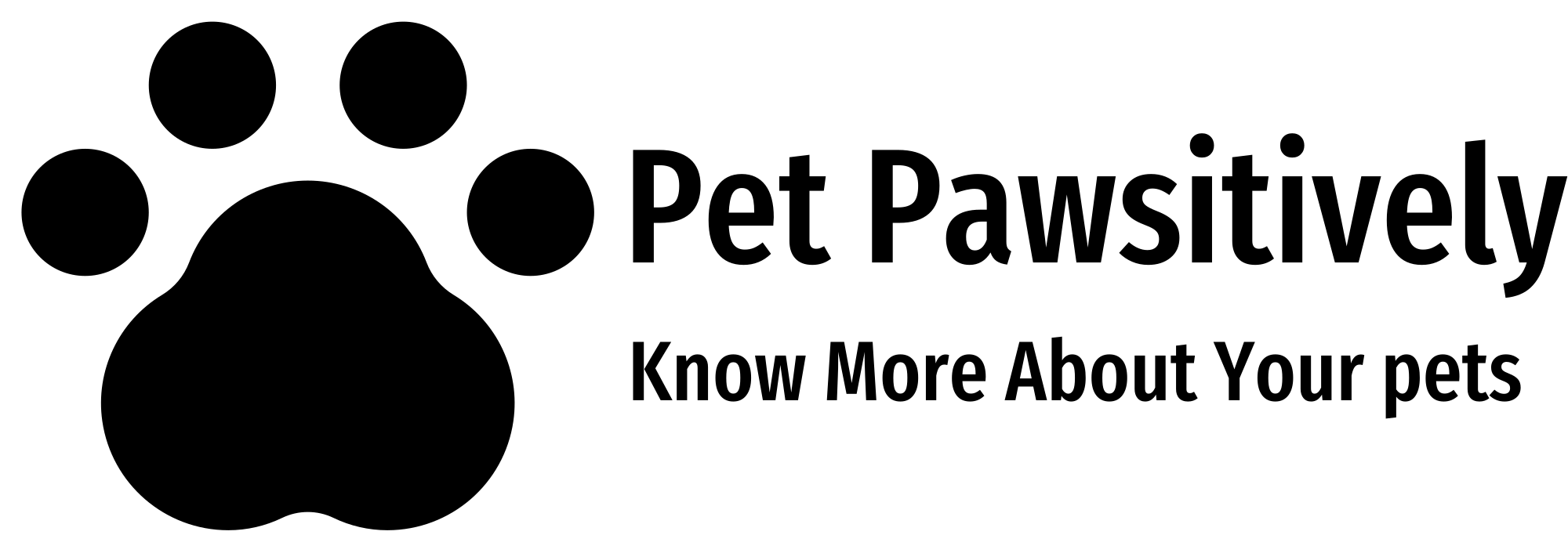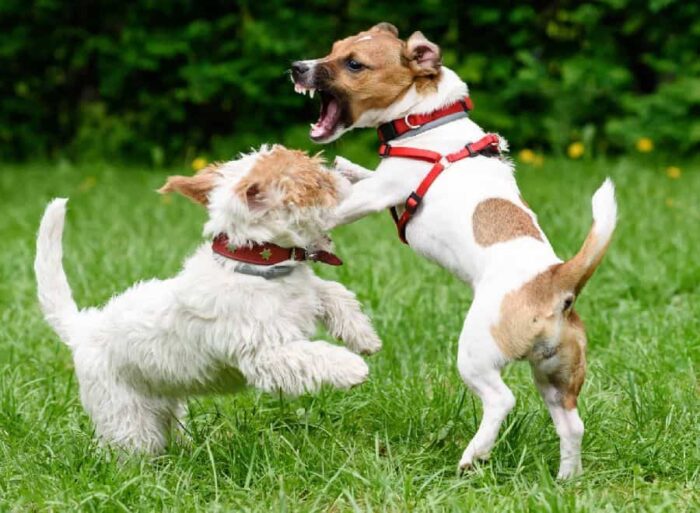If you’re a dog owner, you’ve probably seen your furry friend roll around in the grass at least once. It’s a common behavior that dogs can’t seem to resist, no matter how clean or dirty the grass is. But why do dogs do this? Is it just a way to scratch an itch or is there something more behind this behavior? In this article, we’ll explore the reasons why dogs love rolling in grass and what it says about their natural instincts.
The Science Behind the Roll

Dogs are descended from wolves, and while they have been domesticated for thousands of years, they still retain many of their ancestral instincts. One of these instincts is to roll around in things, including grass. Rolling around in grass is a natural behavior for dogs that serves a variety of purposes.
The Smell of the Earth
Grass contains a variety of scents that dogs find appealing. When dogs roll around in grass, they are able to get a closer look at these scents and understand the environment around them. Rolling in grass allows dogs to pick up on the scent of other animals, as well as any food or other interesting smells in the area.
It Feels Good
Rolling around in grass is also a way for dogs to scratch that itch that they can’t seem to reach any other way. The feeling of the grass on their skin and fur is soothing and can help relieve any discomfort or irritation.
It’s a Way of Marking Their Territory
Dogs are territorial animals, and rolling around in grass is one way that they mark their territory. When a dog rolls around in a particular spot, they are leaving behind their scent, which lets other animals know that this is their territory.
It’s a Sign of Submission
Rolling around in grass can also be a sign of submission. When a dog rolls over onto their back and exposes their belly, it is a way of showing that they are not a threat and are submitting to the authority of another animal.
It’s an Expression of Joy
Finally, rolling around in grass is often an expression of joy for dogs. They may simply enjoy the feeling of the grass on their skin and the freedom to roll around and play.
The Role of Genetics
While all dogs share certain instincts and behaviors, some breeds are more prone to rolling around in grass than others. This is because certain breeds have been specifically bred for hunting or other activities that require them to be in touch with the earth and the environment around them.
The Importance of Understanding Your Dog’s Behavior
As a dog owner, it’s important to understand your dog’s behavior and what motivates them. By understanding why your dog loves rolling around in grass, you can better meet their needs and create a happy and healthy environment for them.
The Role of Positive Reinforcement
If you want to encourage positive behaviors in your dog, such as not rolling in grass when it’s inappropriate or harmful, it’s important to use positive reinforcement. This means rewarding your dog when they exhibit desirable behaviors, rather than punishing them when they do something wrong.
When Rolling in Grass Becomes a Problem
While rolling around in grass is a natural behavior for dogs, it can become a problem if it becomes obsessive or if your dog is rolling in something that could be harmful, such as poison ivy or pesticides. If your dog is exhibiting obsessive behaviors or rolling in harmful substances, it’s important to seek the advice of a veterinarian or animal behaviorist.
Tips for Encouraging Positive Behaviors
If you want to encourage positive behaviors in your dog, such as not rolling in inappropriate places, there are several things you can do. For example, you can provide your dog with plenty of mental and physical stimulation to keep them occupied and engaged. You can also use positive reinforcement techniques to encourage good behavior.
Common Myths About Dogs Rolling in Grass
There are several common myths about dogs rolling in grass that are not based in fact. For example, some people believe that dogs roll in grass to get rid of fleas or other parasites. While rolling around in grass can help to scratch an itch, it’s not an effective way to get rid of parasites.
The Connection Between Rolling in Grass and Other Behaviors
Rolling around in grass is just one of many natural behaviors that dogs exhibit. There is often a connection between different behaviors, such as rolling in grass and digging or hunting. By understanding these connections, you can better understand your dog’s behavior and motivations.
Other Reasons Why Dogs Love Rolling in Grass
While the reasons listed above are some of the most common reasons why dogs love rolling in grass, there are other reasons as well. For example, some dogs simply enjoy the sensation of rolling around and playing. Others may be trying to cool off on a hot day.
FAQs
Is it safe for my dog to roll in grass?
-
Rolling in grass is generally safe for dogs, as long as the grass is not contaminated with harmful substances. If you are unsure about the safety of the grass in your area, it’s best to consult with a veterinarian or animal behaviorist.
Why does my dog roll in poop?
-
Rolling in poop is a natural behavior for dogs, although it can be unpleasant for humans. Dogs may roll in poop as a way of masking their scent or as a way of marking their territory.
How can I encourage positive behaviors in my dog?
-
Positive reinforcement is one of the most effective ways to encourage positive behaviors in dogs. This means rewarding your dog when they exhibit desirable behaviors, rather than punishing them when they do something wrong.
Can dogs get sick from rolling in grass?
-
Dogs can become sick from rolling in grass if the grass is contaminated with harmful substances, such as pesticides or fertilizers. It’s important to be aware of the safety of the grass in your area and to seek the advice of a veterinarian or animal behaviorist if you have concerns.
What should I do if my dog is exhibiting obsessive behaviors related to rolling in grass?
-
If your dog is exhibiting obsessive behaviors related to rolling in grass, it’s important to seek the advice of a veterinarian or animal behaviorist. They can help you to identify the root cause of the behavior and develop a plan to address it.
Is rolling in grass a sign of anxiety in dogs?
-
Rolling in grass is not necessarily a sign of anxiety in dogs, although it can be a symptom of obsessive-compulsive disorder or other anxiety-related conditions. If you are concerned about your dog’s behavior, it’s important to seek the advice of a veterinarian or animal behaviorist.
Can I train my dog not to roll in grass?
-
You can train your dog not to roll in grass, although it may be difficult to completely eliminate the behavior. Positive reinforcement techniques can be effective in encouraging your dog to exhibit desirable behaviors, such as staying away from certain areas or avoiding certain substances.
Is rolling in grass a sign of a skin condition?
-
Rolling in grass can be a sign of a skin condition, such as allergies or parasites. If you notice that your dog is rolling in grass more frequently than usual or exhibiting other symptoms, such as itching or scratching, it’s important to consult with a veterinarian.
Can I use punishment to discourage my dog from rolling in grass?
-
Punishment is not an effective way to discourage your dog from rolling in grass or exhibiting other undesirable behaviors. Positive reinforcement techniques, such as rewarding your dog when they exhibit desirable behaviors, are much more effective in creating lasting behavior changes.
How can I provide my dog with mental and physical stimulation?
-
There are many ways to provide your dog with mental and physical stimulation, such as taking them for walks, playing games with them, and providing them with interactive toys. It’s important to find activities that your dog enjoys and that are appropriate for their age, breed, and personality.
In conclusion, rolling around in grass is a natural behavior for dogs that serves a variety of purposes, including marking their territory, relieving discomfort or irritation, and expressing joy. By understanding your dog’s behavior and motivations, you can better meet their needs and create a happy and healthy environment for them.
If you enjoyed this article, you might also read these: Dogs Health Care: Keeshond Health Issues

Dr. Katie Lawlor is a seasoned expert in pet care with over 8 years of experience dedicated to enhancing the well-being of pets and their families. As a passionate advocate for animal health, Dr. Lawlor combines her extensive knowledge with a compassionate approach, offering valuable insights and practical advice on pet wellness. Her commitment to improving the lives of pets and their owners is reflected in her engaging content on PetPawsitively .com. Follow Dr. Lawlor’s work and connect with her on Instagram for expert tips and support.

